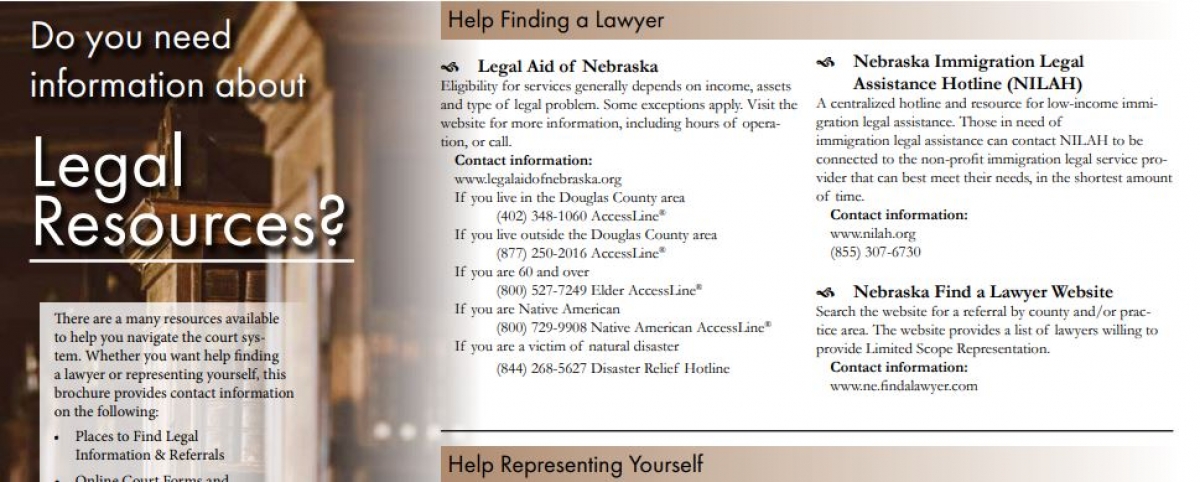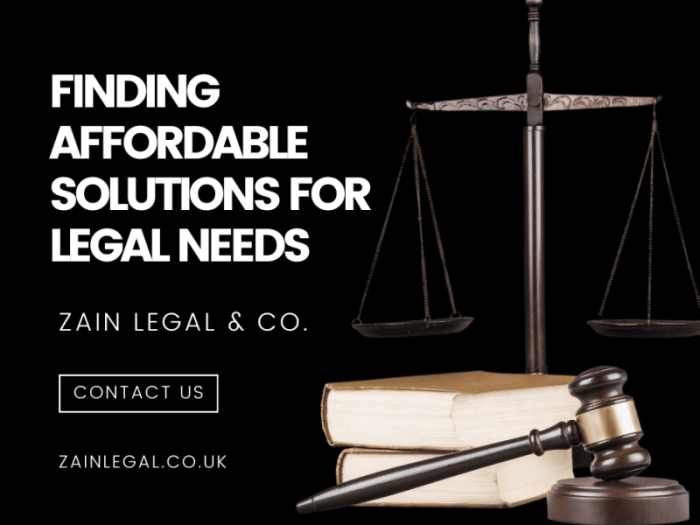What are the affordable resources for self-help legal representation – Navigating the legal system can be daunting, but it doesn’t have to be. With a wealth of affordable resources available, you can empower yourself with the knowledge and tools to effectively represent yourself in court. From free legal aid organizations to online resources and community legal education programs, this guide will provide you with a comprehensive overview of the options at your disposal.
Whether you’re facing a minor legal issue or a more complex matter, understanding your rights and the legal process is crucial. This guide will equip you with the knowledge and confidence to navigate the legal system effectively and protect your interests.
Free Legal Aid Organizations
Free legal aid organizations are non-profit organizations that provide legal assistance to low-income individuals and families. These organizations offer a wide range of services, including:
- Advice and counsel on legal matters
- Representation in court
- Help with legal paperwork
- Referrals to other social services
There are many different free legal aid organizations throughout the United States. Some of the most well-known include:
- Legal Services Corporation
- American Bar Association’s Center for Pro Bono
- National Legal Aid & Defender Association
To be eligible for free legal aid, you must meet certain income and asset requirements. These requirements vary from organization to organization, but in general, you must be at or below 125% of the federal poverty level. To apply for free legal aid, you can contact your local legal aid organization or visit their website.
Legal Aid Clinics at Law Schools
Law school clinics offer a range of legal services to the public, often at low or no cost. These clinics are staffed by law students who are supervised by licensed attorneys. They provide an excellent opportunity for students to gain practical experience while also helping those in need.
Types of Services Offered
- Legal advice and counseling
- Representation in court
- Document drafting and review
- Negotiation and mediation
- Community education and outreach
How to Access Law School Clinics
To access services from a law school clinic, you can typically call or visit the clinic’s website. You will likely be asked to provide some basic information about your legal issue. The clinic staff will then assess your eligibility for services.
Benefits of Using Law School Clinics
- Low cost or free services:Law school clinics typically offer their services at a low cost or for free. This can be a major benefit for people who cannot afford to hire a private attorney.
- Experienced supervision:Law school clinics are supervised by licensed attorneys who have experience in the area of law that the clinic covers. This ensures that you will receive high-quality legal representation.
- Personalized attention:Law school clinics typically have a small number of clients, which means that you will receive personalized attention from the staff. This can be especially helpful if you have a complex legal issue.
Online Legal Resources
The internet has become a valuable resource for those seeking legal assistance. There are numerous reputable online legal resources available that can provide information, guidance, and even access to legal professionals.
Navigating Online Legal Resources, What are the affordable resources for self-help legal representation
To effectively navigate online legal resources, it’s important to be discerning and evaluate the credibility of the information you find. Look for websites that are maintained by reputable organizations, such as legal aid societies, law schools, or government agencies. These sources are more likely to provide accurate and reliable information.
Limitations of Online Legal Resources
While online legal resources can be helpful, it’s important to be aware of their limitations. They cannot replace the advice of an experienced attorney. Legal issues can be complex and vary from jurisdiction to jurisdiction. An attorney can provide personalized advice tailored to your specific situation.
Legal Forms and Templates
Individuals seeking legal representation can access a variety of free or low-cost legal forms and templates online. These resources provide a convenient and cost-effective way to create essential legal documents, such as wills, contracts, and power of attorney forms.
Legal forms and templates are particularly beneficial for individuals who cannot afford to hire an attorney. By using these resources, individuals can save money while still ensuring that their legal documents are valid and enforceable.
Websites for Free or Low-Cost Legal Forms and Templates
- LegalZoom
- Rocket Lawyer
- Nolo
- LawDepot
- US Legal Forms
Before signing any legal document, it is essential to review it carefully to ensure that you understand its terms and conditions. If you have any questions or concerns, you should consult with an attorney for guidance.
Community Legal Education Programs: What Are The Affordable Resources For Self-help Legal Representation

Community legal education programs provide accessible and affordable opportunities for individuals to enhance their legal knowledge and skills. These programs aim to empower individuals with the tools they need to navigate the legal system confidently and effectively.
Types of Community Legal Education Programs
Community legal education programs offer a diverse range of options to cater to different needs and preferences. These programs may include:
- Workshops:Interactive sessions that cover specific legal topics, such as family law, housing rights, or consumer protection.
- Seminars:In-depth presentations that provide a comprehensive overview of a particular legal issue.
- Online Courses:Self-paced courses that offer flexibility and convenience for those with busy schedules.
Accessing Community Legal Education Programs
Finding and accessing community legal education programs is relatively straightforward. These programs are often offered through:
- Community Centers:Local community centers often host legal education workshops and seminars.
- Legal Aid Organizations:Legal aid organizations frequently provide community legal education programs as part of their services.
- Law Schools:Law schools may offer community legal education programs as part of their outreach initiatives.
Benefits of Attending Community Legal Education Programs
Participating in community legal education programs offers numerous benefits, including:
- Increased Legal Knowledge:Programs provide accessible and practical information about legal rights and responsibilities.
- Improved Problem-Solving Skills:Participants learn strategies for identifying and addressing legal issues effectively.
- Enhanced Confidence:Programs empower individuals with the knowledge and skills to navigate the legal system with greater confidence.
| Program Type | Target Audience | Contact Information |
|---|---|---|
| Workshops | General public, individuals with specific legal needs | Local community centers, legal aid organizations |
| Seminars | Professionals, community leaders, individuals seeking in-depth legal knowledge | Law schools, legal aid organizations, bar associations |
| Online Courses | Individuals with flexible schedules, those seeking self-paced learning | Legal aid websites, online education platforms |
Tips for Maximizing Benefits
To maximize the benefits of attending community legal education programs, consider the following tips:
- Identify specific legal issues or areas of interest.
- Research and select programs that align with your needs.
- Actively participate in discussions and ask questions.
- Connect with legal professionals and other participants.
- Apply the knowledge and skills gained to practical situations.
“Attending community legal education programs has been invaluable. I now have a better understanding of my legal rights and feel more confident in handling legal matters. It’s empowering to know that I can advocate for myself and my family.”
Community Member
Pro Se Litigants
A pro se litigant is a person who represents themselves in court without the assistance of an attorney. There are many reasons why someone might choose to represent themselves, including the high cost of legal representation, the desire to have more control over their case, or the belief that they can adequately represent themselves.
There are both advantages and disadvantages to representing oneself in court. Some of the advantages include:
- Cost-effective:Representing yourself in court can save you a significant amount of money that you would otherwise have to pay an attorney.
- Control:When you represent yourself, you have complete control over your case. You can decide what arguments to make, what evidence to present, and how to cross-examine witnesses.
- Personal satisfaction:Representing yourself in court can be a rewarding experience. It can give you a sense of accomplishment and satisfaction to know that you were able to successfully represent yourself.
Some of the disadvantages of representing oneself in court include:
- Lack of legal knowledge:Attorneys have years of training and experience in the law. If you do not have a legal background, you may be at a disadvantage when representing yourself in court.
- Time-consuming:Representing yourself in court can be very time-consuming. You will need to spend a lot of time researching the law, preparing your case, and attending court hearings.
- Stressful:Representing yourself in court can be a stressful experience. You will be responsible for making all of the decisions in your case, and you will be under a lot of pressure to perform well.
If you are considering representing yourself in court, it is important to weigh the advantages and disadvantages carefully. You should also consider your own legal knowledge and experience, as well as the complexity of your case. If you decide to represent yourself, there are a few things you can do to prepare:
- Research the law:The first step is to research the law that applies to your case. You can do this by reading legal books and articles, or by consulting with an attorney.
- Gather evidence:Once you have a basic understanding of the law, you need to gather evidence to support your case. This may include documents, photographs, or witness statements.
- Prepare your arguments:Once you have gathered your evidence, you need to prepare your arguments. This involves deciding what points you want to make in court and how you are going to support them.
- Practice your presentation:Once you have prepared your arguments, you need to practice your presentation. This will help you feel more confident when you are in court.
Representing yourself in court can be a challenging experience, but it is also possible. If you are prepared and you are willing to put in the work, you can successfully represent yourself and win your case.
Legal Assistance Hotlines
Legal assistance hotlines provide free or low-cost legal advice and support to individuals and families with legal issues. These hotlines are staffed by experienced attorneys and legal professionals who can offer guidance on a wide range of legal matters.
To access a legal assistance hotline, simply call the toll-free number listed below. Hotlines typically operate during regular business hours, but some may offer extended hours or 24/7 support. Most hotlines are staffed by attorneys who speak English, but some may offer interpretation services for other languages.
There is no fee to use a legal assistance hotline. However, some hotlines may charge a nominal fee for certain services, such as document review or legal representation.
The following table lists some of the most popular legal assistance hotlines:
| Hotline | Types of Legal Issues Covered | Hours of Operation | Languages Spoken | Fees |
|---|---|---|---|---|
| Legal Services Corporation | Civil legal issues, including family law, housing, consumer law, and employment law | Monday-Friday, 9am-5pm EST | English, Spanish, and other languages upon request | Free |
| American Bar Association | Civil legal issues, including family law, housing, consumer law, and employment law | Monday-Friday, 9am-5pm EST | English and Spanish | Free |
| Pro Bono Net | Civil legal issues, including family law, housing, consumer law, and employment law | Monday-Friday, 9am-5pm EST | English and Spanish | Free |
| LawHelp | Civil legal issues, including family law, housing, consumer law, and employment law | Monday-Friday, 9am-5pm EST | English and Spanish | Free |
| Nolo | Civil legal issues, including family law, housing, consumer law, and employment law | Monday-Friday, 9am-5pm EST | English only | $29.95 per month for unlimited access to legal information and forms |
Legal Aid Bureaus

Legal aid bureaus are non-profit organizations that provide free or low-cost legal services to low-income individuals and families. These services may include legal advice, representation in court, and other legal assistance.To find a legal aid bureau near you, you can visit the website of the National Legal Aid & Defender Association (NLADA) or contact your local bar association.
You can also search online for “legal aid” or “legal services” in your area.Most legal aid bureaus have eligibility criteria that you must meet in order to receive assistance. These criteria may include income guidelines, type of legal issue, and residency requirements.
You can contact your local legal aid bureau to learn more about their eligibility criteria.Legal aid bureaus can assist individuals and families with a wide range of legal issues, including:
- Family law matters, such as divorce, child custody, and child support
- Housing issues, such as evictions and foreclosures
- Consumer law matters, such as debt collection and fraud
- Employment law matters, such as discrimination and wage theft
- Immigration law matters
- Criminal law matters, such as misdemeanors and felonies
There are many benefits to seeking assistance from a legal aid bureau. These benefits include:
- Access to legal expertise
- Reduced costs
- Improved outcomes
If you are facing a legal problem, you should contact your local legal aid bureau to see if you qualify for assistance.
Sliding Scale Fee Attorneys
Sliding scale fee arrangements are a type of payment structure that allows low-income clients to pay for legal services on a sliding scale based on their income and assets. This can make legal representation more affordable for those who need it most.
There are a number of organizations that offer sliding scale fee services, including legal aid clinics at law schools, community legal education programs, and pro se litigants. These organizations typically have income eligibility requirements, and they may also offer other services such as legal advice and representation.
Benefits of Using Sliding Scale Fee Attorneys
- Sliding scale fee arrangements can make legal representation more affordable for low-income clients.
- Sliding scale fee attorneys are often experienced and knowledgeable in the areas of law that they practice.
- Sliding scale fee attorneys can provide high-quality legal representation to their clients.
Sample Letter to a Potential Client Explaining How Sliding Scale Fees Work
Dear [Client Name],I am writing to you today to explain how sliding scale fee arrangements work. A sliding scale fee arrangement is a type of payment structure that allows low-income clients to pay for legal services on a sliding scale based on their income and assets.Under a sliding scale fee arrangement, you would pay a percentage of your income for legal services.
The percentage would be based on a sliding scale, so that clients with lower incomes would pay a lower percentage of their income.I believe that a sliding scale fee arrangement would be a good option for you because it would allow you to get the legal representation you need at a price that you can afford.If you are interested in learning more about sliding scale fee arrangements, please do not hesitate to contact me.Sincerely,[Your Name]
Table Comparing the Costs of Using a Sliding Scale Fee Attorney to the Costs of Using a Traditional Attorney
| Type of Attorney| Cost||—|—|| Sliding scale fee attorney | $0-$1,000 || Traditional attorney | $1,000-$5,000 |
Resources for Finding Sliding Scale Fee Attorneys
- Legal Aid Society
- National Legal Aid & Defender Association
- American Bar Association
Limited Scope Representation

Limited scope representation is a legal service in which an attorney provides legal assistance for a specific, limited aspect of a legal matter. This can be a cost-effective option for individuals who need legal help but cannot afford to hire an attorney for full representation.Limited scope representation can provide several benefits.
First, it can help to reduce the cost of legal services. Second, it can allow individuals to get the legal help they need without having to give up control of their case. Third, it can help to streamline the legal process and make it more efficient.Limited scope representation may be appropriate in a variety of situations.
For example, it may be a good option for individuals who need help with:
- Drafting or reviewing legal documents
- Negotiating a settlement
- Preparing for a hearing or trial
- Representing themselves in court
Negotiation and Mediation
Negotiation and mediation are valuable tools for resolving legal disputes without resorting to costly and adversarial litigation. They offer numerous benefits, including time and cost savings, preservation of relationships, and increased satisfaction with outcomes.
Preparing for and Conducting Negotiations and Mediations
Effective negotiation and mediation require careful preparation. Begin by identifying your goals and interests, gathering relevant information and evidence, and developing a negotiation strategy. Communicate effectively, actively listen, and build rapport with the other party.
Role of Mediators
Mediators play a crucial role in the process. They facilitate communication, help parties identify and explore their interests, generate creative solutions, and draft agreements.
Key Differences Between Negotiation and Mediation
| Feature | Negotiation | Mediation |
|---|---|---|
| Purpose | Reach an agreement | Facilitate a mutually acceptable resolution |
| Role of Parties | Active participants | Participants with the assistance of a neutral third party |
| Role of Mediator | N/A | Facilitator and guide |
| Outcome | Binding agreement | Non-binding agreement or understanding |
Benefits of Negotiation and Mediation
“Negotiation and mediation are valuable tools for resolving legal disputes because they can help parties to reach mutually acceptable solutions while preserving relationships and minimizing costs.”
[Legal professional’s name]
Legal Document Preparation Services
Legal document preparation services can provide a valuable solution for individuals who need legal documents drafted but cannot afford to hire an attorney. These services offer a cost-effective way to obtain professional-quality legal documents without the high cost of legal fees.There are a variety of legal document preparation services available, each offering a different range of services and fees.
Some services specialize in preparing simple documents, such as wills, trusts, and powers of attorney. Others offer more complex services, such as drafting contracts, business formation documents, and real estate documents.
Benefits of Using Legal Document Preparation Services
There are several benefits to using a legal document preparation service, including:
Cost-effective
Legal document preparation services are typically much more affordable than hiring an attorney to draft legal documents.
Convenient
Legal document preparation services can be accessed online or in person, making it convenient for individuals to get the legal documents they need.
Professional
Legal document preparation services are staffed by experienced professionals who can draft legal documents that meet the specific needs of their clients.
Importance of Choosing a Reputable Legal Document Preparation Service
When choosing a legal document preparation service, it is important to select a reputable company that has a proven track record of providing high-quality services. Here are a few things to look for when choosing a legal document preparation service:
Experience
Choose a service that has been in business for several years and has a proven track record of providing high-quality services.
Reputation
Read online reviews to see what other customers have said about the service.
Services
Make sure the service offers the types of legal documents you need.
Fees
Compare the fees of different services to find the best deal.
Types of Legal Documents That Can Be Prepared
Legal document preparation services can prepare a wide variety of legal documents, including:
- Wills
- Trusts
- Powers of attorney
- Contracts
- Business formation documents
- Real estate documents
- Family law documents
- Estate planning documents
Tips for Choosing a Reputable Legal Document Preparation Service
Here are a few tips for choosing a reputable legal document preparation service:
- Ask for referrals from friends or family members who have used a legal document preparation service.
- Read online reviews to see what other customers have said about the service.
- Check the service’s website to see if it has a good reputation.
- Make sure the service offers the types of legal documents you need.
- Compare the fees of different services to find the best deal.
Sample Legal Document Preparation Service Advertisement
Need a legal document drafted?Our legal document preparation service can help you get the legal documents you need quickly and affordably. We offer a wide range of services, including:
- Wills
- Trusts
- Powers of attorney
- Contracts
- Business formation documents
- Real estate documents
- Family law documents
- Estate planning documents
Our experienced professionals can draft legal documents that meet your specific needs. Contact us today to learn more about our services.
Other Affordable Options

In addition to the resources mentioned above, there are several other affordable options for self-help legal representation. These options include legal clinics at community colleges or non-profit organizations.These programs provide free or low-cost legal assistance to low-income individuals and families.
They are staffed by volunteer attorneys and law students who can provide advice, representation, and other legal services.
Legal Clinics at Community Colleges
Many community colleges offer legal clinics that provide free or low-cost legal assistance to students and community members. These clinics are typically staffed by volunteer attorneys and law students who can provide advice, representation, and other legal services.To access these programs, you can contact the legal clinic at your local community college.
Legal Clinics at Non-Profit Organizations
There are also a number of non-profit organizations that offer legal clinics that provide free or low-cost legal assistance to low-income individuals and families. These clinics are typically staffed by volunteer attorneys and law students who can provide advice, representation, and other legal services.To access these programs, you can contact the non-profit organization that offers the legal clinic.
Concluding Remarks

Remember, you are not alone in your legal journey. By leveraging the affordable resources available, you can empower yourself with the knowledge and tools to effectively represent yourself and achieve a favorable outcome.
Q&A
What are the benefits of using free legal aid organizations?
Free legal aid organizations provide invaluable assistance to low-income individuals and families. They offer free legal advice, representation in court, and other legal services to help people navigate the legal system and protect their rights.
How can I find a reputable legal aid organization in my area?
You can find a reputable legal aid organization in your area by contacting your local bar association or legal aid society. You can also search online for legal aid organizations in your state or county.
What are the eligibility requirements for receiving free legal aid?
Eligibility requirements for free legal aid vary depending on the organization and the type of legal services you need. Generally, you must meet income and residency requirements to qualify for free legal aid.